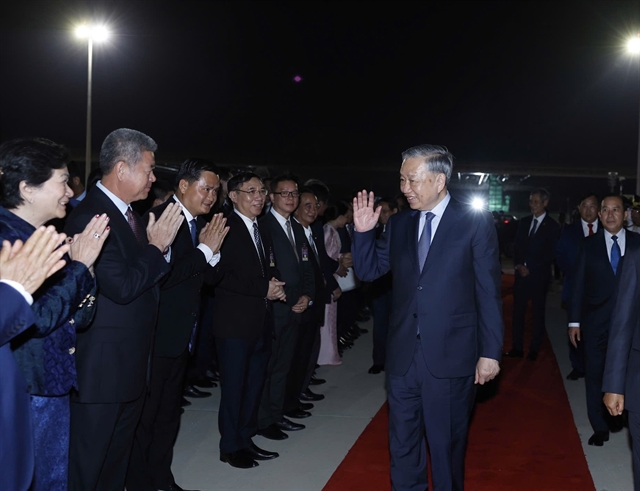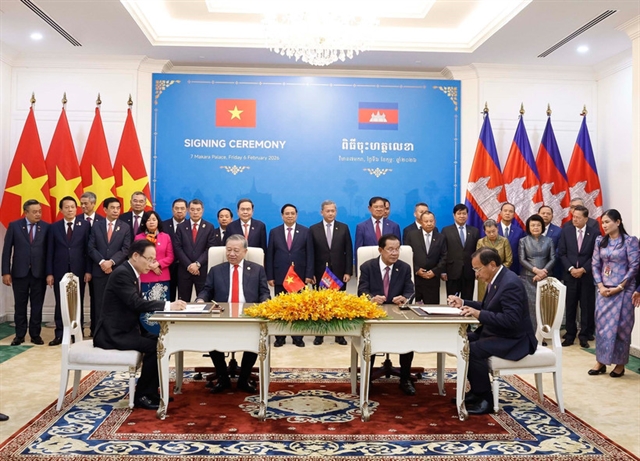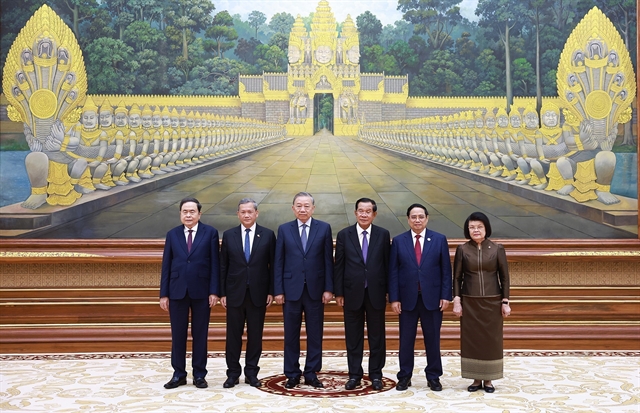

SINGAPORE- Media OutReach - 28 June 2019 - Following on this year's theme forASEAN "Advancing Partnership for Sustainability" and the strong focus fromThailand on Industry 4.0 under its Chairmanship of ASEAN, the EU-ASEAN BusinessCouncil (EU-ABC) today launched its second paper by its Digital EconomyAdvocacy Group entitled, 'Growing a Stronger Digital Future in Southeast Asia'.The paper focuses on the creation and growth of a strong digital economy inASEAN to boost economic growth and development in the region, and is beingpublished on the occasion of the EU-ABC's Annual General Meeting and GalaDinner. The Gala Dinner is beingattended by Minister S. Iswaran, Singapore's Minister-in-charge of TradeRelations.
Commentingon the EU-ABC's recommendations set out in the paper, Mr Donald Kanak, Chairmanof the EU-ABC, said:
"European businesses appreciate the opportunity to contribute tohealthy development of the Digital Economy in ASEAN. Creating the right policyenvironment for healthy development of the Digital Economy is critical forASEAN's international competitiveness and long term growth. Digitaleco-systems require public and private collaboration, investment in infrastructureand education and constant focus on both accessibility and security."
Executive Director of the EU-ASEAN BusinessCouncil, Chris Humphrey, added:
"Just as consumers are hungry for cheaper andfaster delivery of goods and services, companies are faced with lagginginfrastructure, institutions, and human capital development to meet thedemands. While the foundations are being laid to support the digital economy,both the public and private sectors must co-operate to build a consistent andhighly efficient system that empowers consumers, businesses, and governments byallowing for the freest possible flow of cross-border data, ensuring that theright infrastructure is in place to support the digital economy, and adoptingbest practices to ensure the smoother and faster flow of e-Commerce."
The paper notes that "there are several areaswhere further regional development and collaboration is needed if ASEAN is toget the greatest possible benefit out of the digital economy. Creating an eco-system to encouragebusinesses to develop digital platforms to enable them to reach new markets andconsumers, exchange and interpret effectively data, make and receive paymentsin a speedy and low-cost manner, while meeting the increasing demands and expectationsof end-consumers, is of vital importance."
1. EU-ASEAN Tradeand Investment Relationship
The commercial,trade and investment relationship between the European Union and ASEAN isstrong and growing. The EU is the largest economy in the world and is ASEAN'slargest source of foreign direct investment. The EU is also ASEAN's secondlargest trading partner, after China.
2. About theEU-ASEAN Business Council
The EU-ASEAN Business Council (EU-ABC) is the recognised voice forEuropean business within the ASEAN region. It is recognised both by theEuropean Commission and the ASEAN Secretariat, recently being accredited as anEntity associated with ASEAN under Annex 2 of the ASEAN Charter. Independent ofboth bodies, the Council has been established to help promote the interests ofEuropean businesses operating within ASEAN and to advocate for changes inpolicies and regulations which would help promote trade and investment betweenEurope and the ASEAN region.
As such, the Council works on a sectorial and cross-industry basisto help improve the investment and trading conditions for European Businessesin the ASEAN region by sharing information and ideas with policy and decisionmakers and amongst its members and regional players within the ASEAN region.
The EU-ABC'smembership consists of large European Multi-National Corporations and the nineEuropean Chambers of Commerce from around Southeast Asia, representing adiverse range of European industries cutting across almost every commercialsphere from car manufacturing through to financial services and including FMCGand high-end electronics and communications. Our members share a common aim toenhance trade, commerce and investment between Europe and ASEAN.
3. Executive Summaryof the Digital Economy Paper:
This paper makes recommendationsin several policy areas: Digital Infrastructure, Data Governance,E-Commerce and the Movement of Goods and Services, Digital Payments, Paymentand Settlement Systems, Digital Taxation, and Human Capital Development. Therecommendations are aimed at creating and growing astrong digital economy in the ASEAN region.
ASEAN is aregion of huge potential and opportunity. The rates of development areextraordinary. The political leadership of the region are right to point outthe very high GDP growth rates. The young, increasingly tech-savvy population, the high ratesof urbanisation, the diversity of Southeast Asia, and the increasing numbers ofmiddle-class people with more disposable income, all point to a bright futurefor the region.
There isno doubt that the digital economy has the power to add significantly toeconomic growth and development in Southeast Asia.
ASEAN'sown research has stated that "disruptive technologies (particularly mobileinternet, big data, cloud technology, the Internet of Things, the automation ofknowledge work and the social, mobile, analytics and the cloud) could unleashsome US$220 billion to US$625 billion in annual economic impact in ASEAN by2030"[1].Yet, this fast-paced potential growth poses both an opportunity and a challengefor governments in Southeast Asia.
There areseveral areas where further regional development and collaboration is needed ifASEAN is to get the greatest possible benefit out of the digital economy.Creating an eco-system to encourage businesses to develop digital platforms toenable them to reach new markets and consumers, exchange and interpreteffectively data, make and receive payments in a speedy and low-cost manner,while meeting the increasing demands and expectations of end consumers, is ofvital importance.
Inaddition to ensuring that the right physical infrastructure is in place,governments will need to ensure that the right policies and regulatory regimesare developed to encourage the exchange of data, the movement of goods andservices that are sold via digital platforms and innovation in new digitalproducts and services.
Finally, it is essential that theright skill sets are developed in ASEAN to support the further development ofthe Digital Economy: this will involve governments in the region adaptingexisting education programmes to improve and encourage the teaching of ICTrelated skills.
Member companies from the EU-ASEANBusiness Council stand ready to collaborate and partner on the recommendationsoutlined in this paper.
Todownload the position paper, please go to https://www.eu-asean.eu/publications.




